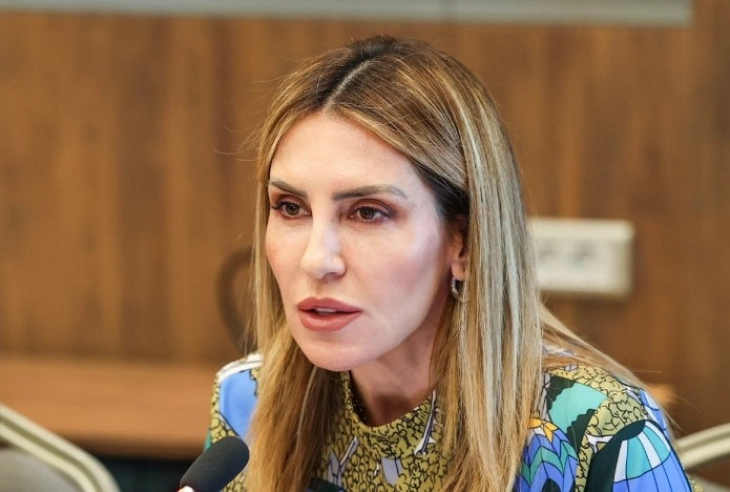Bregu: Risk of poverty in Western Balkans is growing

Sarajevo, 19 October 2022 (MIA) – Secretary General of the Regional Cooperation Council (RCC), Majlinda Bregu, said the upcoming summit of the Berlin Process, if politicians agree, can bring significant changes for the average citizens in the Western Balkans.
In an interview with Beta news agency, Bregu pointed out that the risk of poverty in the region is growing and that none of the six economies in the Western Balkans, according to IMF projections, will reach the growth rate of 2021, stressing that it is precisely in times of crisis that regional cooperation comes to the fore. Bregu said that according to the IMF, inflation rate forecasts for the region are up to 27.8 percent with consumer price growth up to 12.8 percent in 2022.
She added that the weighted average GDP growth of the six economies in the Western Balkans in 2021 was 7.6 percent, but such a high GDP growth rate was due to the reduction in growth of 3.1 percent in 2020, which is the benchmark. "This year's GDP growth rate is predicted to be at a much lower level considering that the region is largely connected to the Eurozone".
Pointing out that the rise in inflation disproportionately affects the poor, Bregu expressed her fear that "given that the population in the Western Balkans region spends more than 50 percent of the budget on food, beverage, electricity, gas and other fuels, more households could be pushed into poverty, and particularly bearing in mind that poverty risk rates in the region are already high and higher than the EU average of 21.9 percent of the population".
Bregu underlined that the crisis "calls for sober thinking about challenges, weaknesses, but as well as opportunities" and that this is exactly where regional cooperation comes to the fore, mentioning cooperation during the pandemic and the establishment of a roaming free region as good examples.
Bregu said she believes that regional economic integration in the Western Balkans is not an independent process unless it is accompanied by concrete plans and a clear roadmap on how and when the Western Balkans will begin the concrete process of gradual rapprochement to the EU. “Or, in other words, when it starts aligning policies and approaches to the single market, as President Ursula von der Leyen rightly proposed for Ukraine,” she added.
In this context she noted that the start of the long overdue negotiations with Albania and North Macedonia is a welcomed demonstration of the geopolitical maturity of Europe, which doesn’t have the luxury of facing a war on its continent and a new security crisis in the Balkans.
She noted that for the first time in eight years, the Balkan Barometer survey recorded a negative trend and a decline in support for European integration, with 60 percent of the citizens of the Western Balkans considering EU membership as a good thing.
“"The increase in pessimism among citizens regarding the fact that their economy will never join the EU hit us very hard. Last year it was 22 percent, and this year it was 28 percent," Bregu told Beta news agency.
She pointed out that in 2018 alone, the region of the Western Balkans lost 1.3 percent of its total population, while this refers only to those who legally migrated to the EU.
"Generally speaking, the threat of depopulation has loomed over the whole of Southeast Europe, which could lose almost 30 million people in this century, and these are not even pessimistic predictions," she pointed out.
In addition, Bregu noted that according to the World Bank forecasts, the average value of public debt will increase from 39.6 to 46.4 percent of GDP in 2022.
Bregu believes that the Western Balkans should look for a sustainable energy supply system and that "the only right path involves a good perspective of green growth and a faster transition to clean energy, which would lead to greener and more independent energy systems".
RCC’s Secretary General said that in the next two weeks, she will participate in the meetings of the ministers of foreign affairs, interior ministers, economy and energy ministers from the Western Balkans, and then in the summit of the heads of state and government of the Western Balkans and the EU on November 3 in Berlin.
According to her, the ministerial meetings and the summit, as well as the accompanying forums of youth, civil society and businessmen, are organized by the German government as part of the annual meeting of the Western Balkans and the EU within the Berlin Process, and the main topics of the summit this year include energy security, the green program and joint regional market.







